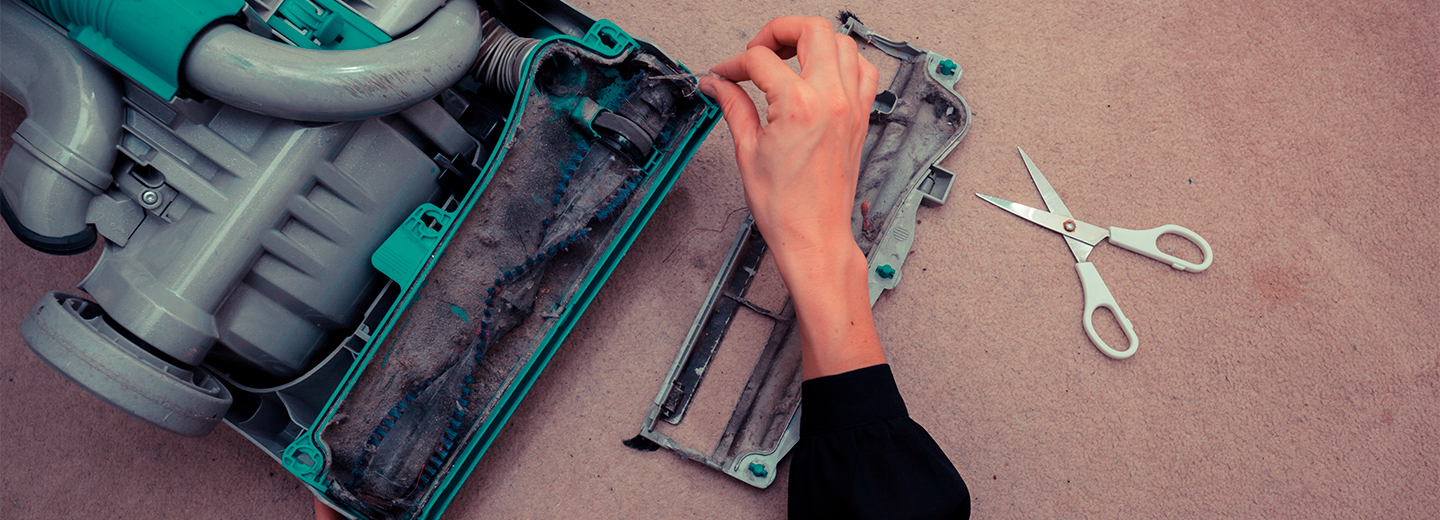
Vacuum cleaners and refrigerators are almost impossible to repair
Researchers from SDU went to the recycling center to try and disassemble vacuum cleaners, but glue and tiny screws made it impossible. “Ludicrous,” says expert in manufacturing and maintenance and hopes that upcoming EU regulations will change the throwaway culture.
Glue, hidden screws and click systems make it almost impossible to repair the vacuum cleaner without breaking it. That is the conclusion after researchers tried to repair 13 discarded vacuum cleaners at a recycling center. Only one out of the 13 vacuum cleaners could be easily repaired.
- The vacuum cleaners are designed to be the most efficient product at the lowest cost. The manufacturers do not even consider that the product should be repairable, says expert in manufacturing and maintenance Associate Professor Erik Skov Madsen from the SDU Centre for Sustainable Supply Chain Engineering:
- Take a car for instance. It can be almost impossible to change the oil filter, and I have had to remove the car wheel to replace a simple headlight bulb. The same is true of domestic appliances such as refrigerators. In regards to sustainability, this is just ludicrous.
For years, Erik Skov Madsen has taught future product engineers, who will go on to create new products. He produces a tome from the book shelf: Design for Manufacturability Handbook;
- There are plenty of big books about design for manufacturability. That means that the products should be as cheap as possible to manufacture – and the aim is to sell as many as possible.
- There are very few books on how to design for repairability, says Erik Skov Madsen.
Planned obsolescence
When the industry is expected to produce continuous growth, it can – eventually – lead manufacturers to speculate in the design of products that will break when the warranty expires. In France, manufacturers who make products with planned obsolescence face punishment.
In 2007, that lead the French consumer organization Stop Planned Obsolescence to sue Brother, Canon, Epson and HP for deliberately shortening the life span of printers and cartridges.
Recently, the organization has made French prosecutors look into allegations of planned obsolescence in Apple’s iPhone after Apple admitted to slowing down older iPhones through software updates.
But Erik Skov Madsen does not think that the manufacturers deliberately design vacuum cleaners and other products in a way that forces the consumer to buy new products.
The glue gun and click systems were invented to make the manufacturing process as efficient as possible. The faster a vacuum cleaner can be assembled in the factory, the cheaper it can be sold, and that creates competitive advantages against other vacuum cleaners.
- Manufacturers of domestic appliances and electronics have had major success with creating low-priced products. In 1986, I bought a washing machine for about $850, and 30 years later, I bought a new one for $450. At the same time, the manufacturers have no incentive to make the products easily repairable, Erik Skov Madsen explains.
Calls for legislation
The EU Commission is revising the Ecodesign directive, which has dictated the energy efficiency of products within the EU since 2009.
By July 2019, the Commission is expected to have passed 11 regulations about eco-friendly design, which among other things determine a minimum life span for products such as refrigerators and washing machines. This includes demands that the products are repairable, and that information and spare parts are available.
- It is very positive that the EU are attempting to pass legislation in this area, because companies need incentive to change their way of thinking to include sustainable products, Erik Skov Madsen says.
Scrap tax
He believes that legislation should be followed by other initiatives. One suggestion is to increase the cost of scrapping domestic goods.
- My water bill shows that I pay more than three times as much to get rid of my water as I do to get it. Imagine if we had to pay three times as much to scrap a product as the original cost.
- If we introduced a similar tax to scrap domestic goods, consumers would definitely repair the washing machine instead of discarding it, Erik Skov Madsen points out.